| Origem | Literatura Estrangeira |
|---|---|
| Quantidade de Páginas | 320 |
| Acabamento | Capa Dura |
| Autores | Kammila Naidoo |
| Idioma | Inglês |
| Edição | 0 |
| Selo | Adonis & Abbey Publishers |
 A era da empatia
A era da empatia
Companhia das Letras
R$ 89,90 à vista TDICs e Sociologia: propostas pedago?gicas: (volume 2)
TDICs e Sociologia: propostas pedago?gicas: (volume 2)
Editora Café com Sociologia
R$ 47,90 à vista Língua Nheengatu: A situação sociolinguística e de letramento dos professores e alunos das escolas indígenas do municíp
Língua Nheengatu: A situação sociolinguística e de letramento dos professores e alunos das escolas indígenas do municíp
Dom Modesto
R$ 119,90 ou até 2x sem juros Fazer-se um corpo no funk
Fazer-se um corpo no funk
Editora Viseu
R$ 40,90 à vista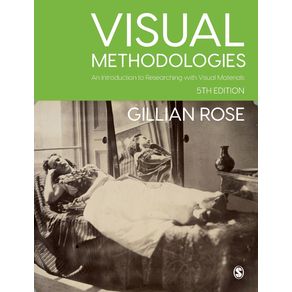 Visual Methodologies
Visual Methodologies
Sage Publications
R$ 485,02 ou até 3x sem juros A Way of Being
A Way of Being
HARPERCOLLINS
R$ 122,77 ou até 2x sem juros Polemica in Difesa Della Scuola Criminale Positiva
Polemica in Difesa Della Scuola Criminale Positiva
Legare Street Press
R$ 240,89 ou até 3x sem juros Les Fables de la Fontaine
Les Fables de la Fontaine
Books on Demand
R$ 229,30 ou até 3x sem juros Research Methods and Statistics for Cross-Cutting Research
Research Methods and Statistics for Cross-Cutting Research
African Books Collective
R$ 363,77 ou até 3x sem juros Right To Die?
Right To Die?
IVP Books
R$ 176,15 ou até 3x sem juros Clearing the Waters
Clearing the Waters
Hadean Press Limited
R$ 123,90 ou até 2x sem juros Woman and the New Race
Woman and the New Race
Cosimo
R$ 158,15 ou até 3x sem juros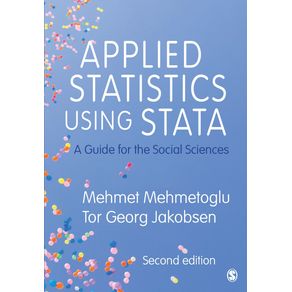 Applied Statistics Using Stata
Applied Statistics Using Stata
Sage Publications
R$ 449,95 ou até 3x sem juros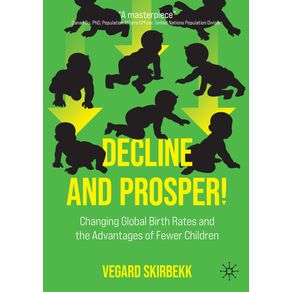 Decline and Prosper!
Decline and Prosper!
Springer Nature B.V.
R$ 279,46 ou até 3x sem juros A Brief History of Panics and Their Periodical Occurrence in the United States
A Brief History of Panics and Their Periodical Occurrence in the United States
Alpha Editions
R$ 102,04 ou até 2x sem juros Ensaios de A a Z para mentes inquietas
Ensaios de A a Z para mentes inquietas
Ferreira Branco, Clécio
R$ 69,90 à vista A justiça mais injusta
A justiça mais injusta
Telha
R$ 52,00 à vista A ação coletiva e seus sentidos
A ação coletiva e seus sentidos
Editora Viseu
R$ 98,90 à vista Pineal Gland Hardcover
Pineal Gland Hardcover
Lushena Books
R$ 98,88 à vista Visual Methodologies
Visual Methodologies
Sage Publications
R$ 485,02 ou até 3x sem juros Buddhism in Iran
Buddhism in Iran
Springer Nature B.V.
R$ 350,56 ou até 3x sem juros A Way of Being
A Way of Being
HARPERCOLLINS
R$ 122,77 ou até 2x sem juros $2.00 a Day
$2.00 a Day
HARPERCOLLINS
R$ 132,55 ou até 2x sem juros Polemica in Difesa Della Scuola Criminale Positiva
Polemica in Difesa Della Scuola Criminale Positiva
Legare Street Press
R$ 240,89 ou até 3x sem juros Genres of Listening
Genres of Listening
Duke University Press
R$ 230,93 ou até 3x sem juros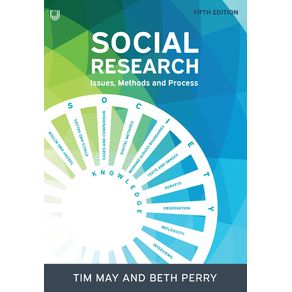 Social Research
Social Research
McGraw-Hill
R$ 324,62 ou até 3x sem juros Research Methods and Statistics for Cross-Cutting Research
Research Methods and Statistics for Cross-Cutting Research
African Books Collective
R$ 363,77 ou até 3x sem juros The Positivity Workbook for Teens
The Positivity Workbook for Teens
ReadHowYouWant.com Pty Limited
R$ 161,71 ou até 3x sem juros Freemasonry Exposition
Freemasonry Exposition
Lushena Books
R$ 88,36 à vista Research for Designers
Research for Designers
Sage Publications
R$ 435,68 ou até 3x sem juros Ensaios de A a Z para mentes inquietas
Ensaios de A a Z para mentes inquietas
Ferreira Branco, Clécio
R$ 69,90 à vista TDICs e Sociologia: propostas pedago?gicas: (volume 2)
TDICs e Sociologia: propostas pedago?gicas: (volume 2)
Editora Café com Sociologia
R$ 47,90 à vista TDICs e Sociologia: propostas pedago?gicas (volume 1)
TDICs e Sociologia: propostas pedago?gicas (volume 1)
Editora Café com Sociologia
R$ 45,90 à vista Língua Nheengatu: A situação sociolinguística e de letramento dos professores e alunos das escolas indígenas do municíp
Língua Nheengatu: A situação sociolinguística e de letramento dos professores e alunos das escolas indígenas do municíp
Dom Modesto
R$ 119,90 ou até 2x sem juros Construindo Contextos: Uma contribuição sociológica para compreender a relação indivíduo e sociedade
Construindo Contextos: Uma contribuição sociológica para compreender a relação indivíduo e sociedade
Editora Viseu
R$ 53,03 à vista O feminismo presente em casa de bonecas
O feminismo presente em casa de bonecas
Editora Viseu
R$ 28,90 à vista A coopetição como estratégia de fortalecimento das capacidades dinâmicas
A coopetição como estratégia de fortalecimento das capacidades dinâmicas
Editora Viseu
R$ 47,90 à vista Gestion participative et politiques publiques
Gestion participative et politiques publiques
KS OmniScriptum Publishing
R$ 566,52 ou até 3x sem juros Visual Methodologies
Visual Methodologies
Sage Publications
R$ 485,02 ou até 3x sem juros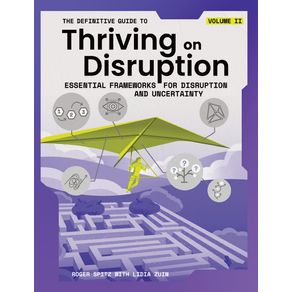 The Definitive Guide to Thriving on Disruption
The Definitive Guide to Thriving on Disruption
Disruptive Futures Institute
R$ 250,93 ou até 3x sem juros Scotch Rite Masonry Illustrated
Scotch Rite Masonry Illustrated
Legare Street Press
R$ 196,99 ou até 3x sem juros Applied Statistics Using Stata
Applied Statistics Using Stata
Sage Publications
R$ 449,95 ou até 3x sem juros Surfside
Surfside
Indy Pub
R$ 118,01 ou até 2x sem juros Freemasonry Exposition
Freemasonry Exposition
Lushena Books
R$ 88,36 à vista Decline and Prosper!
Decline and Prosper!
Springer Nature B.V.
R$ 279,46 ou até 3x sem juros